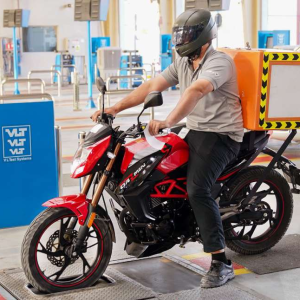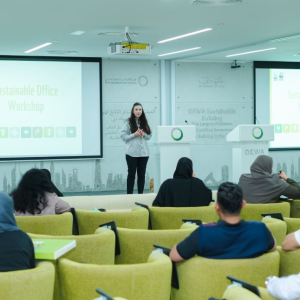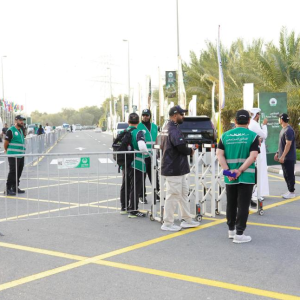Future of mobility is a concept that is rapidly transforming the way we think about transportation. Hussam Baghdadi, Chief Operating Officer at Arabian Automobiles Company, is leading the charge in redefining how people move in the UAE. With over three decades of experience in the automotive industry, Baghdadi brings unique insights into the evolving landscape of mobility, emphasizing flexibility, technology, and sustainability. His vision offers a comprehensive look at how individuals and businesses will interact with vehicles and transportation services in the coming years.
Embracing Flexible Ownership Models
The traditional idea of car ownership is evolving. Today, customers seek options that match their dynamic lifestyles. Hussam Baghdadi recognizes this shift and has championed flexible ownership models as a way to meet these changing expectations. Through innovative lease to own and rent to own programs, customers can now experience vehicles on terms that suit them best, whether for a short period or as a step toward full ownership.
These programs allow customers to select a vehicle for a defined term, with the freedom to upgrade, continue, or switch to another model at the end of the period. Baghdadi emphasizes that these flexible solutions complement traditional sales rather than replace them. Many customers who start with short term arrangements often transition to long term ownership or certified pre owned options.

Flexible ownership provides multiple benefits. For consumers, it offers convenience, variety, and the ability to adapt to personal or professional needs without being tied to a single vehicle for years. For businesses, it opens new revenue streams while fostering customer loyalty and engagement. By aligning vehicle offerings with the preferences of modern customers, companies can create a more resilient and adaptable automotive ecosystem.
Harnessing the Power of Artificial Intelligence
Artificial intelligence is reshaping the automotive industry, and Arabian Automobiles is leveraging it extensively to improve operations and customer experiences. AI driven predictive analytics allow companies to forecast seasonal demands, anticipate new model launches, and understand shifts in customer behavior with remarkable precision.

Baghdadi highlights the importance of AI in every aspect of operations. From inventory management and marketing to aftersales and pricing strategies, AI is central to decision making processes. Predictive algorithms ensure that the right vehicles are available at the right time, minimizing shortages and reducing excess stock. AI also powers personalization, tailoring offers and promotions based on customer behavior and preferences.
Moreover, AI improves operational efficiency. By analyzing patterns in service bookings, maintenance schedules, and sales trends, companies can optimize staff allocation, reduce wait times, and enhance service quality. This creates a seamless experience for customers and strengthens trust and loyalty. In essence, AI transforms traditional dealerships into data driven, responsive organizations that anticipate customer needs and deliver consistent satisfaction.
Revolutionizing the Customer Experience
The customer experience is evolving rapidly, with a significant portion of research and exploration now occurring online. Understanding this shift, Arabian Automobiles has implemented tools and systems to bridge the gap between digital discovery and in person interaction. Digital kiosks, virtual tours, and mobile applications allow customers to explore vehicles and services from the comfort of their homes before visiting a showroom.
Baghdadi believes that the future of mobility is closely tied to a seamless digital experience. Customers want transparency, convenience, and speed in every interaction. By integrating digital tools into showrooms and service centers, the company ensures that the transition from online browsing to offline engagement is smooth and intuitive. Mobile applications consolidate essential services such as booking maintenance, tracking deliveries, or accessing loyalty programs, making ownership simpler and more connected.
Enhanced customer experiences go beyond technology. Arabian Automobiles invests in modernized service centers and personalized support, ensuring that every customer feels valued. Efficient processes reduce waiting times, while knowledgeable staff provide expert guidance. This combination of technology and human touch strengthens customer relationships and reinforces trust in the brand.
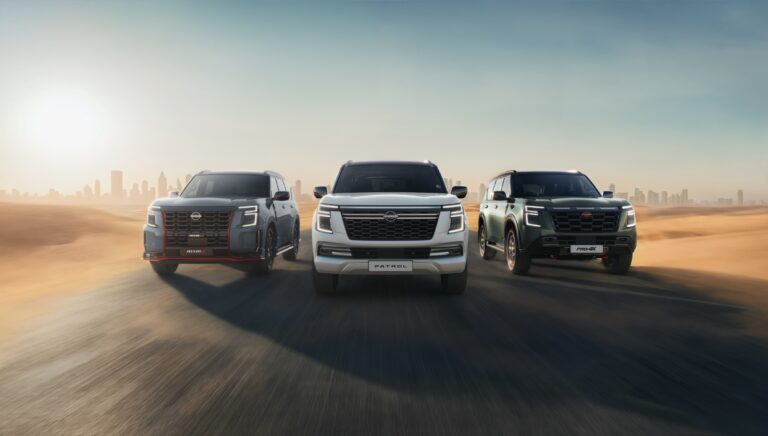
Building Loyalty Through Trust and Innovation
Loyalty remains a key pillar of success in the automotive industry. Arabian Automobiles has cultivated a reputation for reliability and service excellence over nearly six decades. Hussam Baghdadi emphasizes that trust is built on consistent experiences, whether in sales, service, or support.
Innovation is also crucial in maintaining loyalty. By offering flexible ownership models, personalized services, and a broad vehicle portfolio, the company caters to diverse customer needs. From rugged SUVs that symbolize strength and heritage to luxury sedans that provide elegance and comfort, the range of vehicles ensures that there is an option for every lifestyle and preference.
Aftersales services play a significant role in nurturing loyalty. Ensuring that customers receive high quality service throughout their ownership journey reinforces confidence in the brand. This comprehensive approach, combining reliability, flexibility, and innovation, helps maintain a strong connection with customers even as the automotive landscape continues to evolve.
Collaborating for a Sustainable Future
Sustainability is increasingly important in shaping the future of mobility. Hussam Baghdadi envisions a transportation ecosystem where different modes of mobility electric vehicles, shared transport, and even aerial solutions coexist and complement each other. By integrating sustainable practices across operations, companies can reduce emissions, promote cleaner alternatives, and create a more responsible transportation network.
Emerging technologies like electric vertical takeoff and landing aircraft commonly referred to as flying taxis, are part of this vision. Rather than competing with traditional electric vehicles, these solutions complement them by offering new ways to reduce congestion and enhance urban mobility. Baghdadi emphasizes that integrating these technologies responsibly can lead to a more efficient, sustainable, and diverse mobility ecosystem.
Partnerships between automotive, aviation, and technology companies will be key to this transition. Shared infrastructure, integrated mobility packages, and loyalty programs can create a seamless experience for users. This collaborative approach ensures that sustainability does not compromise convenience or flexibility, but rather enhances both.
The Role of Dubai in Shaping Mobility
Dubai’s vision as a smart city plays a crucial role in advancing the future of mobility. Robust infrastructure, extensive electric vehicle charging networks, and digital platforms create an environment where innovation can thrive. Hussam Baghdadi highlights the importance of this ecosystem in supporting new mobility solutions.
The city’s strategic planning allows for the coexistence of traditional vehicle ownership, shared mobility services, and emerging technologies like aerial transport. Investments in smart traffic management, connected road systems, and public private collaborations ensure that residents and businesses benefit from efficient, sustainable, and accessible transportation.
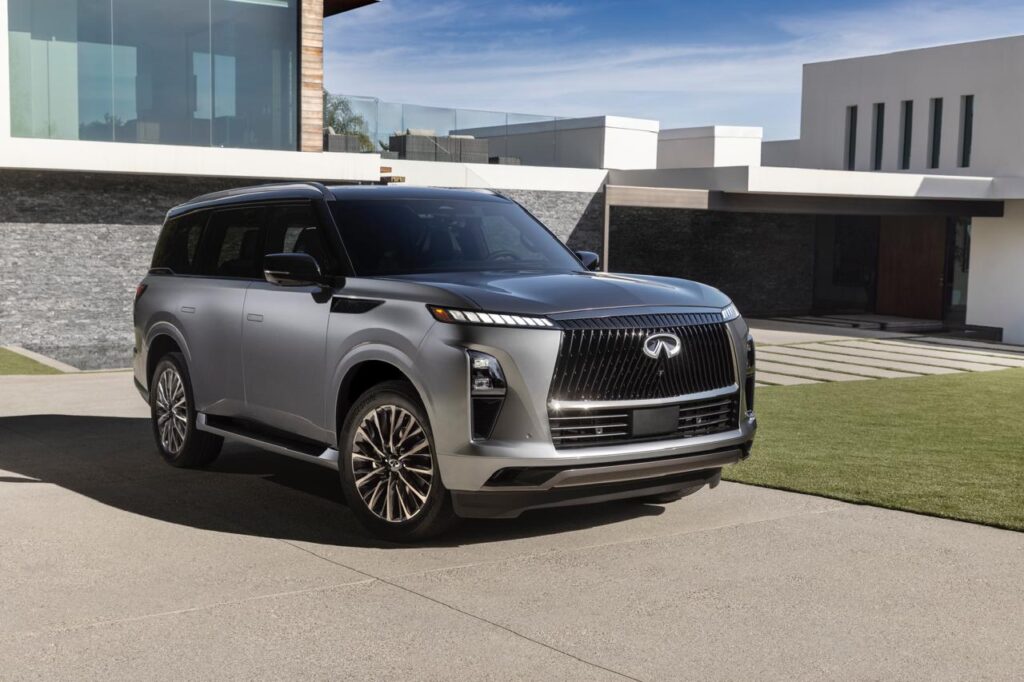
Dubai’s commitment to smart urban development makes it a testing ground for new ideas in mobility. By providing the necessary infrastructure and regulatory support, the city encourages companies to innovate and experiment. This approach positions Dubai as a leader in shaping integrated mobility solutions that can be replicated in other regions.
Emerging Trends in Mobility
Several trends are shaping the future of mobility. Hussam Baghdadi identifies three key areas:
Electrification Electric vehicles are becoming mainstream, with governments and businesses investing heavily in charging infrastructure. Electrification reduces emissions, improves efficiency, and aligns with global sustainability goals.
Connected Vehicles Internet enabled vehicles provide real time data, enhancing navigation, safety, and customer experiences. Connected systems allow for predictive maintenance, personalized offers, and seamless integration with smart city infrastructure.
Mobility as a Service Subscription based services, ride sharing, and multi modal transportation are gaining popularity. Customers seek convenience and flexibility rather than ownership alone. Companies that embrace mobility as a service are better positioned to meet these evolving demands.
Baghdadi believes that understanding these trends and proactively adapting to them is essential for success. Companies that invest in technology, sustainability, and customer centric strategies will lead the mobility revolution.
Future Proofing Automotive Businesses
Adapting to change is crucial for automotive businesses. Hussam Baghdadi emphasizes that companies must balance tradition with innovation. While maintaining the core values of trust, quality, and service, businesses should embrace new technologies, flexible ownership models, and sustainable solutions.
Workforce training and development are also key components of future proofing. Employees need to understand digital tools, AI applications, and emerging technologies to provide excellent customer experiences. Continuous learning ensures that staff remain equipped to navigate a rapidly changing landscape.
Furthermore, data driven strategies allow businesses to anticipate market trends, understand consumer behavior, and optimize operations. By combining human expertise with advanced analytics, companies can create agile and resilient business models that thrive in the future of mobility.
Conclusion
Hussam Baghdadi’s vision of the future of mobility is holistic, combining flexibility, technology, sustainability, and customer centric strategies. By embracing flexible ownership, leveraging AI, enhancing digital and in person experiences, and fostering collaboration across sectors, Arabian Automobiles is actively shaping the transportation landscape in the UAE.
The future of mobility is not just about vehicles. It is about creating ecosystems that integrate multiple forms of transportation, reduce environmental impact, and deliver seamless experiences for customers. With leaders like Baghdadi at the helm, the UAE is positioned to lead the world in redefining how people move, live, and interact with technology.
As the automotive industry evolves, companies that prioritize innovation, sustainability, and customer trust will thrive, setting the standard for the future of mobility globally.
Do follow UAE Stories on Instagram
Read Next – Etihad Rail Yango Group Partnership: Transforming Passenger Travel in the UAE.






